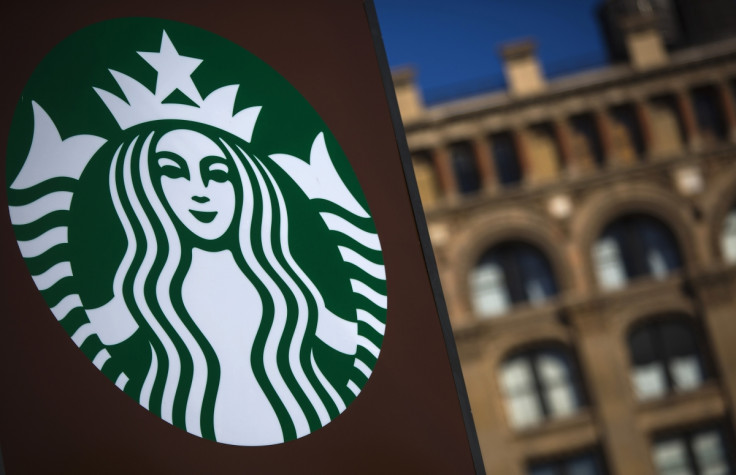'Shocking' sugar levels found in hot drinks sold by Starbucks, Costa and Cafe Nero

Hot drinks containing "shocking" levels of sugar are being sold by popular high street chains, according to a campaign group. Starbucks, Costa and Cafe Nero have all been accused of fuelling a national obesity crisis by selling their sugar-laden beverages.
Research by Action on Sugar found more than a third of the nation's favourite hot flavoured beverages contain the same or more sugar than a can of Coca-Cola, with some having a staggering 25 teaspoons of sugar – over three times the recommended daily intake for adults.
The worst offender was a large, or "Venti", version of Starbucks' Hot-Mulled Fruit drink which comes in either Grape with Chai or Orange and Cinnamon flavour. The drink contains 99g of sugar, the equivalent of eating five muffins.
Costa's largest Chai Latte contained the next highest level, at almost 80g, while drinks from KFC and Cafe Nero also featured in the list of top 20 worst offenders. The organisation's research said 98% of the 131 hot-flavoured drinks it found being sold by high street chains would carry the Food Standards Agency "red" warning label for excessive levels of sugar.
Top 10 hot drinks with highest levels of sugar
1. Starbucks Hot Mulled Fruit - Grape with Chai, Orange and Cinnamon Venti – 99g (25 teaspoons)
2. Starbucks Hot Mulled Fruit - Apple with Chai, Dried Apple and Cinnamon Venti – 88g (22 teaspoons)
3. Costa Coffee Chai Latte Massimo – 79.7g (20 teaspoons)
4. Starbucks Hot Mulled Fruit - Grape with Chai, Orange and Cinnamon Grande – 76g (19 teaspoons)
5. Starbucks White Chocolate Mocha with Whipped Cream Venti – 73.8g (18 teaspoons)
6. Starbucks Hot Mulled Fruit - Apple with Chai, Dried Apple and Cinnamon Grande – 69g (17 teaspoons)
7. Starbucks Signature Hot Chocolate Venti – 60g (15 teaspoons)
8. Starbucks White Chocolate Mocha with Whipped Cream Grande – 59.1g (15 teaspoons)
9. KFC Mocha – 58.8g (15 teaspoons)
10. Costa Coffee Mocha Latte Massimo – 57.5g (14 teaspoons)
The hot drinks industry has become big business in Britain with an estimated 1.7bn cups of coffee sold each year. The big chains, like Costa and Starbucks, have tried to lure non-coffee drinkers into their stores with high-sugar beverages like Chai, hot chocolate and beverages containing flavoured syrups. It is estimated one in five people in Britain now visit a coffee shop daily.
Action on Sugar called for the big chains to stop serving extra-large cups of sugary drinks, and singled out Starbucks for criticism claiming their biggest servings "are much larger than those offered by its competitors".
Kawther Hashem, registered Nutritionist and Researcher for Action on Sugar said: "Coffee shop chains must immediately reduce the amount of sugar in these hot drinks, improve their labelling and stop selling the extra-large serving sizes. These hot-flavoured drinks should be an occasional treat, not an 'everyday' drink.
"They are laden with an unbelievable amount of sugar and calories and are often accompanied by a high sugar and fat snack. It is not surprising that we have the highest rate of obesity in Europe. Our advice to consumers is to have a plain hot drink or ask for your drink to contain a minimal amount of syrup, preferably sugar-free, in the smallest serving size available."
The group is also calling for an independent body to be given responsibility for nutrition and to implement legally binding targets. These would see a 50% reduction in sugar and a 20% reduction in fat in all unhealthy drinks and foods within five years.
More controversially, the agency would also manage the introduction of a sugar tax of 20% on the sale of all sugar-sweetened drinks. It comes after a report from MPs on the influential health select committee said a 20% levy should be an essential part of any national strategy to tackle child obesity.
Prime Minister David Cameron has previously said he was opposed to introducing new taxes but there are signs Number 10 could change its mind when it comes to the food and drinks industry. Cameron is due to outline his strategy on child obesity next month.
Professor Graham MacGregor, Professor of Cardiovascular Medicine at Queen Mary University of London and chair of Action on Sugar, said: "This is yet again another example of scandalous amount of sugar added to our food and drink. No wonder we have the highest rates of obesity in Europe.
"Cameron now has all the evidence to make the UK the first country in the world to stop the obesity and type 2 diabetes epidemic. To do this Cameron has to be radical and follow every single action that we have set out in our comprehensive plan. Otherwise it will be the final nail in an already bankrupt NHS."
Nicola Close, chief executive of the Association of Directors of Public Health, added: "These results highlight the need for more transparency on sugar content and compulsory labelling of sugar content. Drinkers deserve to know how much sugar they are consuming."
Following the Action on Sugar report, a spokesperson for Starbucks said: "Earlier this year we committed to reduce added sugar in our indulgent drinks by 25% by the end of 2020. We also offer a wide variety of lighter options, sugar-free syrups and sugar-free natural sweetener and we display all nutritional information in-store and online."
A statement from Costa said: "We take the nutritional balance of our food and drink very seriously and we have already taken significant steps to reduce the sugar content of our ranges. We intend to continue improving the balance of our product offerings while maintaining the high quality and great taste our customers expect. This April we will be setting salt and sugar reduction targets for 2020."
© Copyright IBTimes 2025. All rights reserved.






















